MercoPress. South Atlantic News Agency
Tag: Brazilian Institute of Geography and Statistics (IBGE)
-
Thursday, April 2nd 2015 - 08:20 UTC
Brazil’s industrial production drops in February; 11 out of 24 sectors down
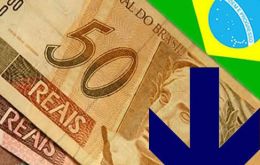
Brazil's industrial production dropped in February after a momentary uptick at the beginning of the year, as factories and mines braced for what economists say could be the country's worst year in more than two decades.
-
Wednesday, February 4th 2015 - 09:17 UTC
Brazil's industrial production contracted sharply in 2014, worst year since 2009

Brazil’s industrial production contracted sharply in December and finished last year with its steepest decline since 2009, as rising interest rates, weak demand and waning confidence from consumers and businesses weighed on output.
-
Saturday, September 27th 2014 - 09:08 UTC
Relief for Dilma: unemployment rate in August remained at 5%
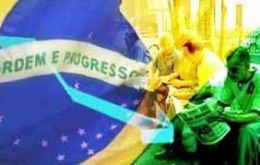
Brazil's jobless rate rose in August to its highest in six months despite stronger job creation, adding to signs that the economic recession is eroding a robust labor market. The non-seasonally adjusted jobless rate stood at 5.0 percent in August, up from 4.9% in July, statistics agency IBGE announced.
-
Saturday, August 30th 2014 - 10:53 UTC
Brazil in recession; Minister Mantega blames external factors and World Cup

Brazil has fallen into recession, further weakening President Dilma Rousseff, just weeks before voting in what will be a tough re-election battle. Brazil's national statistics institute said Friday GDP shrank 0.6% in the second quarter and revised an initially positive first quarter growth estimate down to -0.2 percent.
-
Monday, August 11th 2014 - 08:06 UTC
Brazil's July inflation surprises and slows to 0.01%, and 6.5% in twelve months

Brazil's Broad Consumer Price Index (IPCA) ended July at 0.01%, the Brazilian Geography and Statistics Institute (IBGE) reported. This figure reflects a decrease compared to June (0.4%) with transport and personal expenses items, contributing for the reduction.
-
Monday, August 4th 2014 - 07:16 UTC
Brazilian auto industry drops 36% in June and drags industrial output
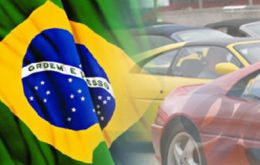
Brazil's industrial output fell 6.9% in June compared to the same month last year, mostly due to a contraction of the automobile industry, reported the official stats office last Friday.
-
Thursday, July 17th 2014 - 06:24 UTC
Brazil looking ahead to another year of record grains crop: 192.5 million tons
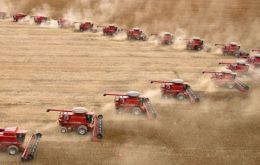
Brazil which has become one of the world’s food powerhouses is forecasting a record harvest of 192.5 million tons of grains, up 2.3% over the previous period, according to the latest report from the Brazilian Stats and Geography Institute, IBGE.
-
Thursday, July 3rd 2014 - 06:40 UTC
Brazilian industry contracts for the third month running in May

Brazilian industrial output fell for the third straight month in May despite efforts from government to prop manufacturing through stimulus measures. Industrial production in Brazil fell 0.6% in May from April, and 3.2% from the same month a year ago, and 1.6% in the five months of 2014, government statistics agency IBGE said on Wednesday.
-
Thursday, June 12th 2014 - 06:30 UTC
Brazil increases cultivation area and expects record grain harvest in 2014
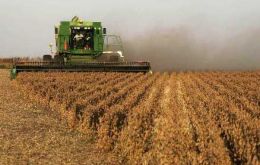
Brazil, one of the world's leading agricultural producers, expects a record grain harvest this year of 192.3 million tons, up 2.2% from 2013, the IBGE statistics agency said this week.
-
Monday, June 9th 2014 - 16:06 UTC
May inflation in Brazil moderates but drought-stricken food prices still impact

Brazil's monthly consumer prices index slowed in May versus the previous month, but not as much as expected, as the impact of one of the worst droughts in decades in food prices receded only partially. The IPCA rose 0.46% compared with a 0.67% climb in April, the Brazilian Geographic and Statistics Institute, or IBGE, said.
